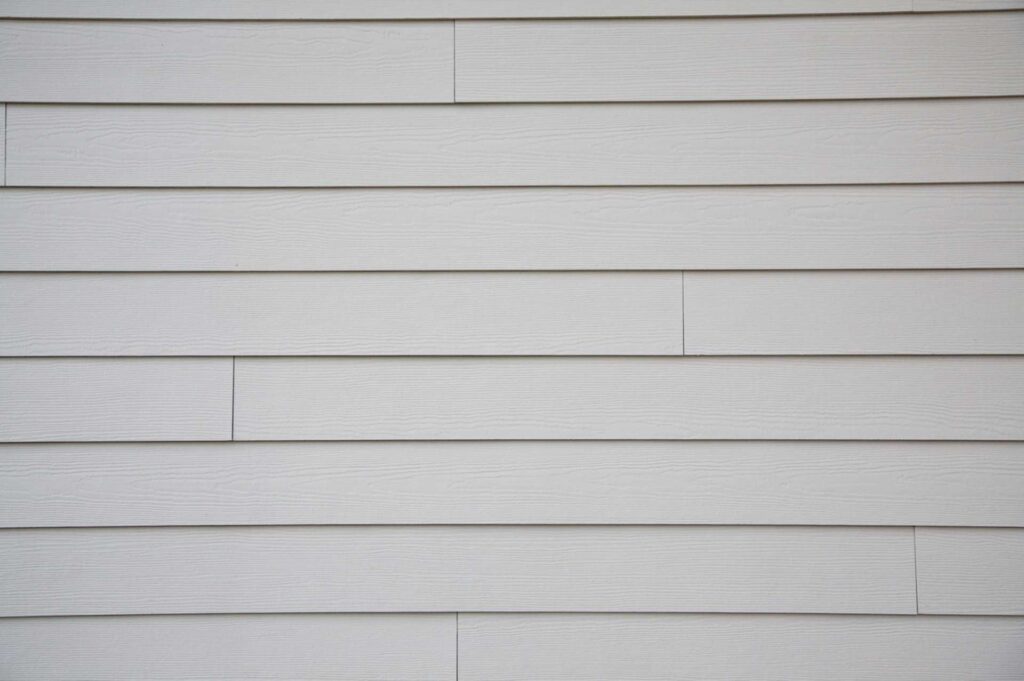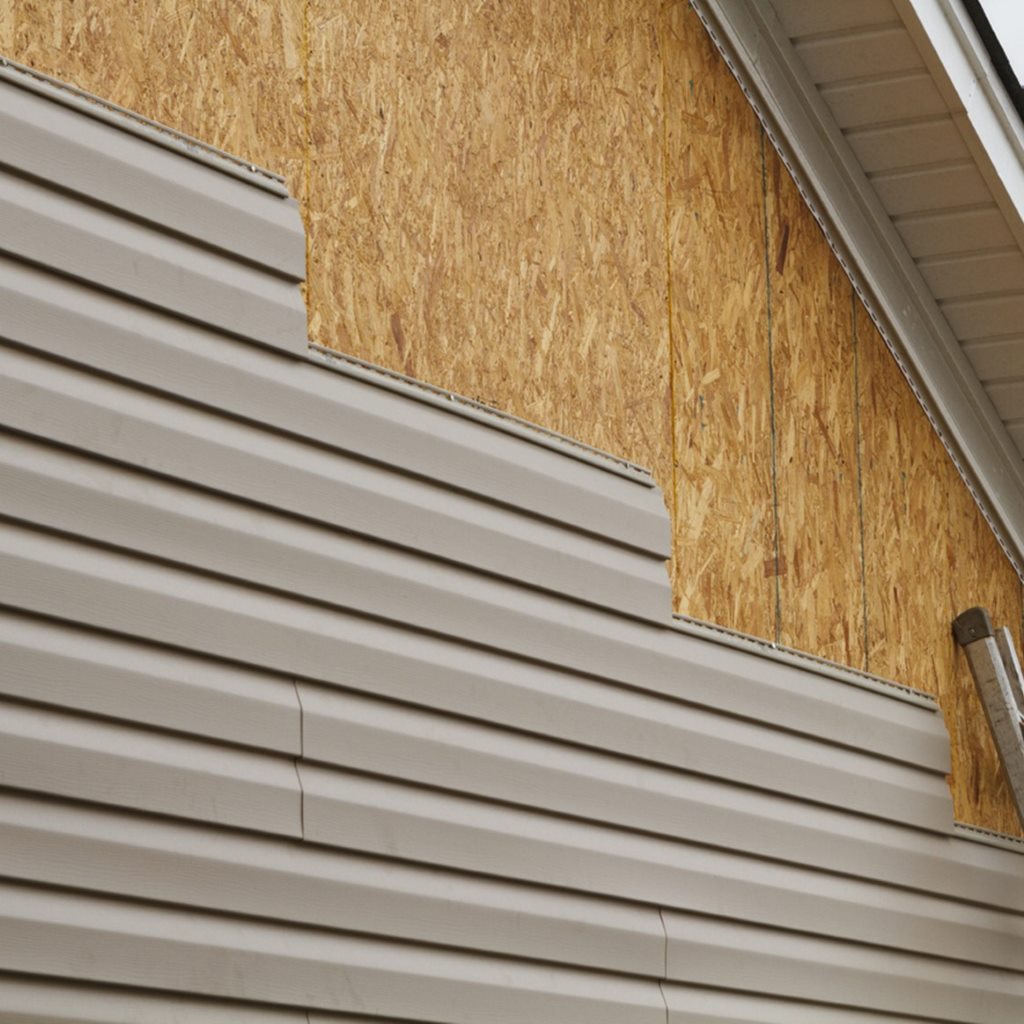Choosing the right siding for your home is a significant decision, as the material you choose will influence not just the appearance of your home but also the durability and maintenance of the siding itself. Both fiber cement and vinyl are popular options, but which one is the best option for your home? In the following blog, we’re going to take a look at the fiber cement siding vs. vinyl siding debate, comparing each when it comes to aesthetics, resistance, cost, installation and efficiency. Let’s dive in!
Fiber Cement Siding
Characteristics and Composition
So, what is fiber cement siding? Fiber cement siding is a composite material made of cement, sand, and cellulose fibers, and is known for its sturdiness as well as its ability to mimic the appearance of natural wood and stone. However, this material's heavyweight makes it more challenging to install and may require additional support structures.
Advantages of Fiber Cement Siding
The benefits of fiber cement siding include its durability and resistance to fire, pests, and rot, as well as its composition, which makes it less susceptible to warping or cracking in extreme weather conditions. Fiber cement siding can also provide a degree of sound insulation, and isn’t overly prone to fading quickly, meaning it keeps its appearance over time.
Fiber Cement Disadvantages
Despite these advantages, fiber cement siding has notable drawbacks: for one, it's considerably more expensive than vinyl siding, both in terms of material and installation costs. Its installation is labor-intensive, often requiring specialized tools and expertise, and the siding itself is also prone to moisture absorption, which can lead to issues like mold growth and deterioration if it isn’t properly sealed and maintained. Plus, the need for repainting every few years adds to its long-term maintenance costs, so it’s not the best option if you’re a homeowner looking for a low-maintenance option.
Vinyl Siding
Material Makeup of Vinyl Siding
Onto vinyl, this type of siding is made from PVC (polyvinyl chloride), and is a lightweight and highly versatile option. Its composition allows for a broad range of colors and styles - including textures that can mimic wood grain and stone - and its flexibility makes it a widely preferred choice for homeowners looking for something that combines both durability and aesthetic appeal.
Advantages of Vinyl Siding
The primary advantage of vinyl siding is its cost-effectiveness; it's not only more affordable upfront but also offers significant savings over time due to how low maintenance it is for homeowners. This is because unlike fiber cement, vinyl siding doesn't require repainting and is resistant to moisture, which prevents issues like rot and mold taking root. Its durability also ensures that it can withstand extreme weather conditions without warping or cracking, so it’s an all-round long-lasting option for any home.
Vinyl Siding Disadvantages
While vinyl siding is an excellent choice for many homeowners, it does have some limitations; it isn’t as resistant to high temperatures as fiber cement, and in extreme heat, it can warp or melt. However, with proper installation and in typical weather conditions, these issues are very rarely a concern.
Comparing Fiber Cement and Vinyl Siding: Key Considerations

Aesthetics
When it comes to aesthetics, fiber cement siding offers a natural and classic look, which might appeal to homeowners who prefer traditional styles. However, vinyl siding counters with a versatility that fiber cement simply can’t match; the range of colors and textures available in vinyl siding allows you to achieve virtually any look for your home, from modern minimalism to rustic charm. Plus, innovations in vinyl siding technology have significantly enhanced its ability to mimic other materials like wood, so it’s even a popular choice for those seeking balance between beauty and practicality.
Insulation Properties
Insulation is another critical factor in siding choices, so where do each of these options stand? Fiber cement siding, due to its dense composition, provides some level of insulation, however vinyl siding once again takes the lead in this category. With options for insulated vinyl siding, you can enhance your home's energy efficiency, in turn reducing heating and cooling costs and saving on your utility bills. Not only does viny’s insulation power contribute to a more comfortable living environment, but it also means having a more eco-friendly home.
Installation Considerations
The installation process is another factor to take into consideration; fiber cement’s heavy and rigid nature demands more labor and expertise, which often results in higher installation costs. Special tools are also usually required for cutting and fitting, and the process can be time-consuming; this complexity not only affects the cost but also extends the duration of your installation project.
Conversely, vinyl siding installation is much more straightforward: its lightweight panels are easier to handle and can be quickly installed, meaning you spend less on labor time and the costs that come with it. Additionally, the simplicity of the installation process means the disruption to your day-to-day life during the renovation remains minimal.
Budget and Costs
Finally - what about costs? Generally speaking, fiber cement siding - while durable - comes with a higher price tag, both in terms of materials and installation. The long-term maintenance costs, - such as the need for periodic painting and sealing - also add to its overall expense.
In comparison, vinyl siding is notably more budget-friendly, with a lower installation cost complemented by minimal maintenance requirements.
Your House - Your Choice
Ultimately, the decision between fiber cement siding and vinyl siding depends on your own individual preferences, your budget, and any specific requirements you may have for your home. That being said, while fiber cement offers a traditional look and solid durability, its high cost and maintenance requirements may be deterrents for some. Vinyl siding, with its affordability, ease of maintenance, and versatility, is the superior choice for those looking for an efficient, cost-effective, and attractive siding solution.
